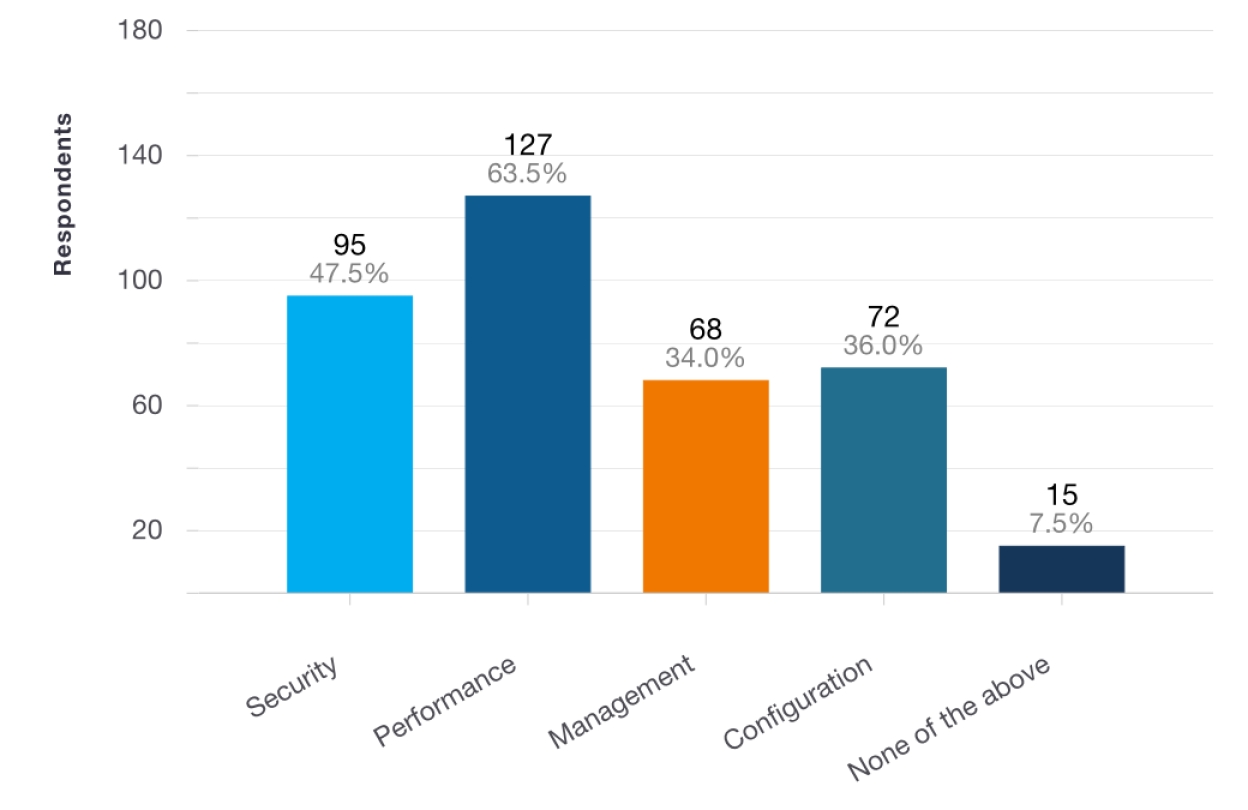For many years – decades even – enterprise and consumer users alike have looked to Virtual Private Networks (VPNs) to add security to their applications across networks and Internet. But the advent of the cloud, including multi-cloud and hybrid cloud arrangements, is changing all of that.
A recent Futuriom survey of IT Managers regarding their view on applications networking trends reveals the need for a new kind of applications specific networking (ASN) that includes integrated security and cloud connectivity. These ASNs, or AppWANs, would be able to connect and secure cloud applications without the need for specific hardware configurations of VPN servers.
- We've also highlighted the best VPNs
The cloud shift
As applications move from on premises applications to hybrid-cloud environments, it’s causing challenges for IT and networking managers looking to efficiently and securely connect applications.
Futuriom surveyed 200 IT managers in application development, networking, security and DevOps to find out what they view as these primary challenges and how they might be solved.
One of the main conclusions of the survey is that VPNs are not seen as a cloud networking solution. VPNs have significant security and performance drawbacks for use in networking cloud applications, with 63.5% of users survey citing issues with VPN performance and 47.5% citing issues with security.
When using VPNs for cloud connections, which issues do you face? Select all that supply

In addition, 75% of VPN users said they are seeking a better solution for cloud networks. They also don’t see private lines or MPLS as fully secure networking solutions for cloud applications. Most use an additional security overlay.
What exactly are the problems with VPNs for cloud networks? Comments from end users Futuriom has spoken with indicate that VPNs often generate network and/or processing overhead as users connect to VPN servers. In some cases this can generate significant latency and delays for networking resources. Additionally, VPNs introduce management complexity because they typically require their own servers with authentication.
This primary research reflects the fact that cloud-based applications and virtualization has shifted networking needs away from devices and boxes and toward native applications-based networking solutions. The data shows that IT departments are looking for a way to build automated networking functionality directly into applications.
One of the important themes addressed by the survey is how IT staff view the use of VPNs in cloud networks and how they are likely to evolve. Data gathered indicates that while many respondents use VPNs for extranets, B2B networks, and connected supply chain, 75% of them are seeking a better solution.
True or False: I use VPNs for extranets, B2B or connect supply-chain use cases, but I am seeking a better solution.

What about SD-WAN?
With the trend known as software-defined wide-area networking (SD-WAN) taking firm grip , you might think this could serve as the new VPN. After all, SD-WANs can add significant security features, including an encrypted overlay to the network.
But our research findings reveal that enterprise users don’t see SD-WANs as a solution for all networking security challenges. For example, SD-WANs may be appropriate for branch connectivity, but they don’t always support applications beyond the network including IOT devices.
A large number of IT managers surveyed did not see SD-WAN IoT solution, with 43.5% of users agreeing with the statement SD-WAN is not an ideal solution for networking Industrial IoT devices. 33.5% disagreed with this statement and 23% said they don't know.
AppWans to the rescue
The answer may lie in new AppWANs and ASNs that can connect IoT devices using techniques such hardware root-of-trust, creating “Zero Trust” network. When asked if Zero Trust network architectures are a significant improvement in networking security, 55.5% agreed this was true, while only 15% disagreed (29.5% said they don't know).
ASNs are powerful because they can create logical networks across the Internet and WAN to connect applications, whether that’s a cloud endpoint, an applications, a branch device, or an IoT device. These AppWANs are sell positioned to replace legacy technologies like VPNs and MPLS, which are tied to specific hardware devices but aren’t nearly as flexible.
Based on the results of the Futuriom survey, it’s clear to IT managers are looking for a more flexible and secure software-based networking solution for the cloud. ASNs are likely to serve the future need to connect distributed applications in SaaS, IaaS, and PaaS environments, whether it’s single cloud, hybrid cloud, and multi-cloud environments.
R. Scott Raynovich, Principal Analyst at Futuriom
from TechRadar - Internet news https://ift.tt/2Ot3OvV
via IFTTT


0 comments:
Post a Comment